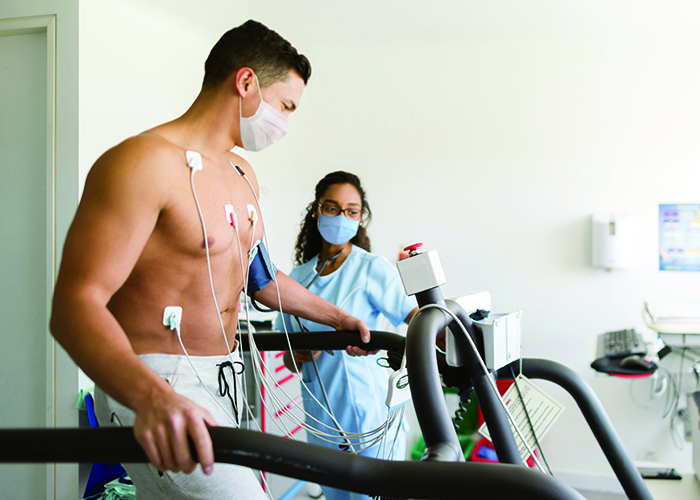How a Stress Test Can Help Diagnose and Manage Cardiac Conditions
June 21, 2021
The more you know about your heart, the better equipped you are to help keep it healthy. That’s where a stress test comes in. Here, Justin Leeka, DO, of Las Vegas Medical Group – Spring Valley Primary Care, explains more about stress tests and the role they can play.

Q. What is a stress test?
A stress test shows how your heart performs during physical activity and can provide helpful information about your cardiac health. During exercise, your body needs more oxygen, and your heart has to work harder. What effect does this have on your heart rate, breathing, blood pressure and your heart’s electrical signals? These are some of the things that a stress test can measure.
Q. Why is a stress test ordered?
Your doctor may order a stress test if you have an irregular heartbeat (arrhythmia) or symptoms of coronary artery disease like chest pain or shortness of breath. It also may be used to help diagnose different cardiac conditions or determine how heart treatments are working. Additionally, a stress test can show how much exercise is appropriate for you and help guide other health decisions.
Q. What happens during an exercise stress test (or stress EKG)?
The test usually involves walking on a treadmill, or sometimes pedaling a stationary bike, while you are hooked up to an electrocardiogram (EKG) machine to monitor your heart. You may be asked to breathe into a tube to help assess your breathing. You can ask to stop at any time if you are not feeling well. The exercise itself usually lasts no more than 15 minutes.
Q. What is a nuclear stress test?
A nuclear stress test provides pictures of blood flow to your heart using radioactive dye and an imaging machine. Images are taken while you are at rest and during exercise. The results may be used to help diagnose and treat coronary artery disease, which occurs when plaque builds up in the arteries. This testing may be recommended alone or in addition to other tests to help better understand your heart health.
Stress Test Tips
• Wear comfortable clothes and walking shoes.
• Bring your inhaler if you have one, and make sure the doctor knows about it.
• Consider stretching your arm and leg muscles before your stress test.
